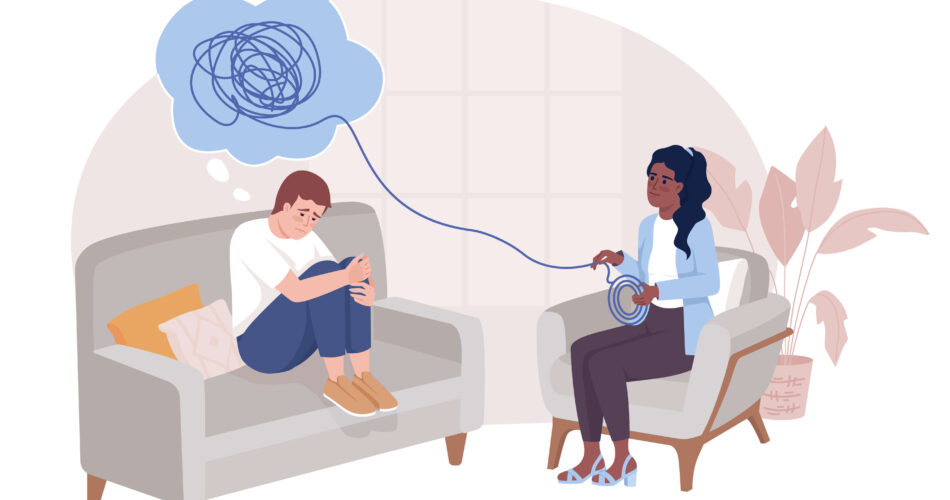Mental health crisis has been an ongoing problem in the Philippines. Many people are afraid to be diagnosed due to the stigma attached to the concept of mental health illness. While it is a huge problem, changes in this medical field are here, especially with the availability of mental health treatment in the Philippines.
It is important to understand that dealing with mental health issues must involve a thorough care system due to the complexity of the mind. If you are currently in need of guidance and seek immediate mental health treatment, follow this blog to begin taking care of your mental health. Let’s begin!
The Current State of Mental Health Care

The Department of Health (DOH) in the Philippines recognizes the importance of mental health and has taken steps to improve mental health care in the country. The Philippine Mental Health Act, also known as Republic Act No. 11036, was signed into law in 2018 to provide a legal framework for mental health care and ensure the protection of the rights of individuals with mental health conditions. While progress has been made, there are still challenges to overcome in terms of accessibility, affordability, and stigma surrounding mental health in the Philippines.
More challenges begin to arise especially during the pandemic. The constant threat of the virus combined with the scarce resource of seeking help led to many people developing mental health conditions. Even after the pandemic, mental health specialists have recognized that mental health conditions have become one of the common disabilities in the Philippines. Thus, calling it a ‘silent epidemic’.
Challenges in Accessing Treatment
As mentioned, there is a lack of resources, facilities, mental health support, and mental health workers, particularly in rural areas. There is a significant disparity in mental health services between rural and urban areas, with Metro Manila having better access to mental health facilities and specialists. In that case, the cost of mental health care can also be a barrier for many individuals, as affordable mental healthcare options are limited. That being said, most patients who don’t have the resources for treatment can deteriorate further.
Furthermore, stigma and discrimination surrounding mental health are a constant reminder why people don’t recognize their conditions. The stigma is a strong force that doctors are slowly breaking to enable patients to seek help freely. Unfortunately, even with the Philippine Mental Health Act, professionals in the mental health field still noticed the lack of pursuit to address the mental health crisis. Thus, the growing need for better actions in this field is a must to better serve mental health wellness to the patients.
Common Mental Health Disorders in the Philippines

With the rise of mental health conditions in the Philippines, there are notable mental illnesses that commonly occur. These mental health disorders can have a significant impact on an individual’s well-being and quality of life. That’s why it is best to seek help immediately to avoid such interference in one’s daily life.
Anxiety Disorders
Anxiety disorders are a common mental disorder in the Philippines, affecting a significant number of individuals. These disorders can manifest in various forms, including generalized anxiety disorder, panic disorder, social anxiety disorder, and specific phobias.
Individuals with anxiety disorders may experience excessive worrying, restlessness, difficulty concentrating, and physical symptoms such as rapid heartbeat and shortness of breath. Seeking mental health treatment in the Philippines for this mental disorder is important to immediately address the illness. That way, the patient can manage it early on and prevent the possible consequences it entails.
Sleep Disorders
Another common condition that people commonly seek mental health treatment in the Philippines is the sleep disorder. Sleep disorders like insomnia, sleep apnea, and restless leg syndrome are commonly seen among the population. Lack of quality sleep can lead to various health problems and affect daily functioning. Seeking medical help from healthcare professionals specializing in sleep disorders is crucial for managing these conditions effectively.
In Manila, there are sleep clinics and specialists who provide diagnostic services and personalized treatment plans to address different sleep disorders. By addressing sleep issues, individuals can improve their overall mental and physical well-being, enhancing their quality of life.
Depression
Meanwhile, one of the prevalent mental health problems in the Philippines involves the mood disorder, which is depression. It is characterized by persistent feelings of sadness, hopelessness, and loss of interest in activities. Depression can have a profound impact on an individual’s daily life, relationships, and overall well-being. It is one of the most known reason why the incidence of suicide is in higher rate.
General hospitals in the Philippines often have mental health departments or clinics that provide assessment, diagnosis, and treatment for individuals with mental illnesses, including depression. These facilities may offer counseling, therapy, and medication management to help individuals manage their symptoms and improve their mental health.
Bipolar Disorder
Lastly, patients with this mental illness can experience extreme shifts in mood, energy, and activity levels. Additionally. individuals may experience periods of mania, characterized by elevated mood, increased energy, and impulsive behavior, as well as periods of depression.
It is important for individuals with bipolar disorder to receive proper diagnosis and treatment from mental health professionals. At the same time, strong family support in Filipino culture can also play a role in the treatment and management of bipolar disorder.
Options for Mental Health Treatment in the Philippines

In the Philippines, various treatment options cater to mental health needs. These treatment options can be divided into 2 types, the in-patient and outpatient mental health treatment in the Philippines.
In-Patient Treatments and Their Purpose
In-patient mental health treatment in the Philippines involves the need to stay in a mental hospital or specialized facility for a certain period of time. It is commonly recommended for individuals with severe mental health conditions that require intensive care, support, and monitoring. Patients can have a safe and structured environment as they receive round-the-clock care from mental health professionals.
In the capital region, there are several mental health facilities that offer in-patient treatments. Whether you are in need of a monitored quality care psychiatric service, don’t hesitate to visit a hospital near you. The mental health doctor will first assess your condition and identify if your condition needs this type of treatment option.
Out-Patient Treatments and Benefits
Meanwhile, another mental health treatment in the Philippines is the out-patient option. This treatment involves regular visits to mental health facilities or clinics. It offers several benefits, including flexibility, continuity of care, and the opportunity for individuals to continue their daily activities while receiving treatment.
Mental health services provided in out-patient settings include assessment, counseling, therapy, and medication management. Metro Manila, being a major urban area, has a wide range of mental health facilities and specialists that offer out-patient treatments. These services aim to help individuals manage their mental health conditions, improve their well-being, and live fulfilling lives.
How to Seek Help: A Step-by-Step Guide

Seeking help for mental health issues can be a daunting task, but it is an important step towards recovery and well-being. The Department of Health (DOH) and various mental health organizations in the Philippines provide support and resources to make the process easier. Here is a step-by-step guide on how to seek help for mental health issues:
- Recognize the need for help: The first step is to acknowledge that you or someone you know is experiencing mental health issues. Common signs include persistent feelings of sadness or anxiety, changes in sleep or appetite, difficulty concentrating, and withdrawal from social activities.
- Reach out to a mental health professional: Contact the Department of Health or a mental health organization to find a mental health professional near you. They can provide guidance on available services, such as free psychiatric consultation and counseling.
- Make an appointment: Once you have identified a mental health professional, schedule an appointment. Some clinics or hospitals accept online consultations, while some prefer physical check up. If needed, seek assistance from a family member or friend to help with the process.
- Prepare for the appointment: Before the appointment, gather any relevant medical records, medications, or information about your symptoms. This will help the mental health professional assess your condition more accurately. It is also important to have a list of questions or concerns to discuss during the appointment.
- Attend the appointment: On the day of the appointment, arrive on time and be prepared to share your thoughts and feelings openly. The mental health professional will listen, ask questions, and provide guidance based on their expertise. They may recommend further assessments or treatment options.
- Follow the recommended treatment plan: After the appointment, it is important to follow the recommended treatment plan. This may include therapy, medication, lifestyle changes, or a combination of these. It is important to be consistent and communicate any concerns or side effects to the mental health professional.
- Seek support from loved ones: Mental health treatment can be a journey, and having a support system can make a significant difference. Share your experience with trusted family members or friends who can provide emotional support and encouragement.
Remember, seeking help for mental health issues is a sign of strength and self-care. With the right support and treatment, it is possible to achieve better mental well-being and live a fulfilling life.
How to Consult with a Mental Health Doctor on NowServing?
If you need an immediate consultation with a mental health doctor, you can choose the online consultation on NowServing. Aside from that, you can also browse and schedule an appointment with your preferred doctor through the process below:
- Click the link to view the list of mental health doctors in the Philippines.
- Choose the doctor by pressing the “Book Appointment” button.
- Fill up the form and confirm your booking
- Wait for the confirmation message.
Frequently Asked Questions
How much does mental health treatment cost in the Philippines?
The cost of mental health treatment in the Philippines varies depending on the type of service and the facility. There are affordable options available, especially in general hospitals and mental health facilities.
If you are using NowServing for seeking mental health treatment, you can expect a psychiatrist consultation fee that starts at Php 500.00. However, take note that other treatments such as therapy session cost and others are not yet included here. Consult with the mental health doctor to better understand the whole cost for the mental health treatment.
Can I access mental health services online?
Yes, mental health services are available online in the Philippines. Many mental health professionals and organizations provide telehealth services, allowing individuals to access support and treatment remotely. Contact the Department of Health or the Philippine Mental Health Association for more information on online mental health services.
Conclusion
Navigating mental health treatment in the Philippines can be challenging due to the stigma and lack of resources for people to acquire. However, there can still be an upcoming change in the mental health field, which is an ideal situation for the patients with mental health in the Philippines. Thus, allowing them to address their condition with ease.
Although that doesn’t mean that patients don’t have some treatment options that they can already utilize today. Seeking help through in-patient or out-patient treatments, as well as utilizing online mental health services are effective for better management of one’s health.
Mental Health Treatment in the Philippines Quiz
Test your knowledge about mental health care in the Philippines
Explanation



